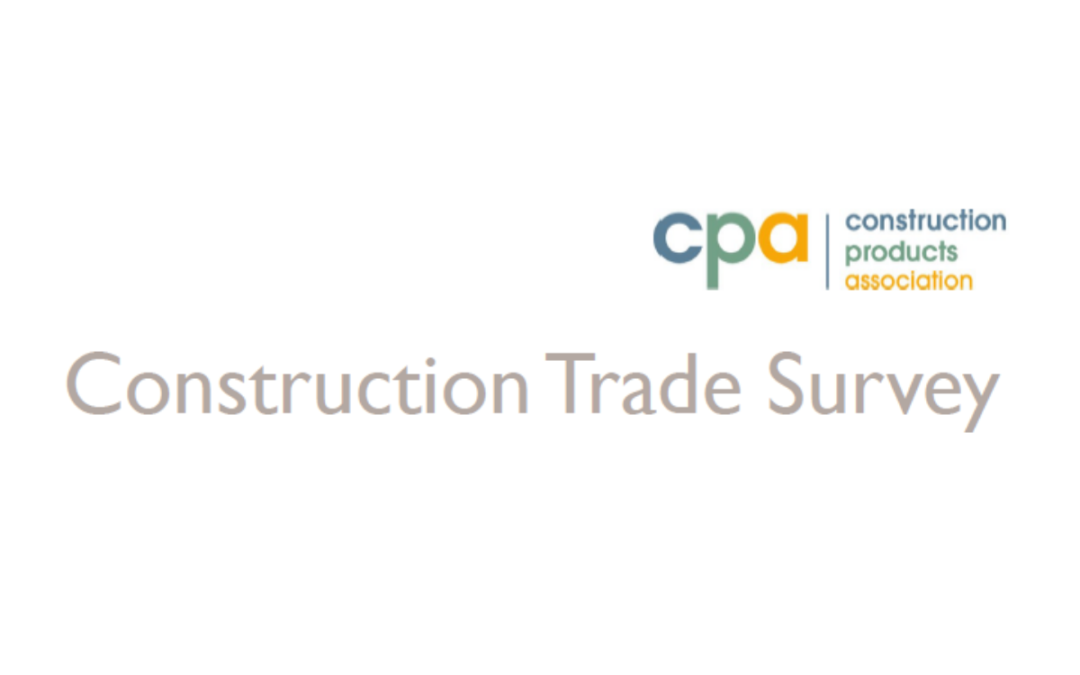
by Clair Mooney | Sep 30, 2021 | Labour, Material Shortages
The Government has announced a package of measures to tackle the shortage of HGV drivers, which is causing widespread disruption across supply chains. It includes training 4,000 new drivers, offering 5,000 temporary visas for HGV drivers in the run up to Christmas, and using Ministry of Defence examiners to increase HGV testing capacity.
Build UK continues to work with the Chartered Institute of Procurement & Supply (CIPS) to publish up‐to‐date information on the availability of key construction materials. For the first time, each material has been RAG‐rated on price as well as availability, and timber and concrete are currently ‘red’ for both. Only cladding and paint are rated ‘green’ on availability and price.
To help members manage the contractual impact of a range of Brexit‐related issues, Build UK has worked with Wedlake Bell LLP to produce guidance on Your Contracts Post‐Brexit, which provides comprehensive advice on dealing with delays to time and programme, price and currency fluctuations, and sourcing materials and legal ownership.

by Clair Mooney | Aug 31, 2021 | Market data, Material Shortages
The latest CPA survey of the supply chain showed that the construction industry remained in expansion mode during the second quarter of 2021.
Construction product manufacturers reported the fourth consecutive quarterly rise in product sales, whilst SME building contractors and chartered surveyors saw workloads rise yet again in Q2. While growth in workloads remained broad-based across sectors, it was largely led by private housing and RM&I, where activity has been sustained by government housing policies and increased demand for larger properties with outdoor and office/study space in rural areas due to the homeworking trend. Infrastructure also remained a key driver due to works occurring on a number of large-scale projects and long-term regulatory frameworks, with civil engineering contractors reporting the third consecutive annual rise in workloads in Q2.
Forward-looking indicators point to further growth over the coming year, with the net balances for product sales and workload expectations, enquiries and orders all hitting multi-year highs in Q2. Despite this, the supply of materials and products remained the biggest issue for chartered surveyors and civil engineers and were viewed as the main risk to product manufacturers’ 12-month sales outlook due to ongoing global supply chain issues. Concerns with the recruitment of skilled labour were also echoed across the supply chain, most notably for carpenters and bricklayers relating to house building, as well as general on-site trades. Raw material costs also emerged as another potential constraint, but the proportion of civil engineers raising tender prices for both new work and R&M hit an all-time high, whilst chartered surveyors expect rising profit margins in the year ahead.
FIS members can access the full results of the Construction Trade Survey here.

by Iain McIlwee | Aug 24, 2021 | Material Shortages
It has been confirmed that the final transition to UKCA Marking from CE Marking will be delayed by 12 months allowing time for legislation to pass through Parliament, industry to prepare for change and the newly formed UK Approved Bodies to put in place the necessary processes to support the market.
Pressure has been mounting, not just from the construction sector, but the wider product manufacturing sector, that limitations related to mutuality of recognition have thrown up a number of practical challenges that could have prevented products being available from the 1st January 2022. A delay of the transition deadline to January 2023 has been rumoured, but was confirmed by Government yesterday that CE Marked products would still be able to be placed in the UK market for another 12 months.
Commenting on the delay, FIS CEO Iain McIlwee said:
“When we are already beset by shortages, to remove further uncertainty, at least for the short-term is good news – this announcement will give manufacturers more time to prepare, but also distribution to make decisions about stock. Concerns with the implementation of the UKCA Mark have dominated discussions of the Construction Leadership Council’s Regulatory Alignment Group over the past 12 months and I know the Construction Products Association have been taking these concerns forward to Government on our behalf. This delay is good news as it give us a but more time to prepare, but it doesn’t solve all the issues associated with Mutuality of Recognition and particularly the daft situation that manufacturers and suppliers will still need to re-test or assess products in a different geographical location for no reason other than politics. In the wake of a renewed focus on Building Safety and more rigorous testing regimes, it is potty to waste money and time and tie up vital and valuable testing time to tick political boxes.”
It should be remembered that no such extension is available to products being sent to the EU from the UK, where CE Mark, where necessary issued by an EU Notified Body according to EU Rules. This means UK Test reports will still not be recognised by the EU thus unilaterally invalidating all existing AVCP System 3 testing carried out in the UK and those for the future. These tests will need to be repeated at an EU-27 Notified Body. The announcement does not change the situation in Northern Ireland.
Visit the FIS Brexit Toolkit here
FIS Update on Shortages here

by Clair Mooney | Jul 22, 2021 | Material Shortages
Yesterday, Richard Waterhouse from NBS hosted a panel discussion with industry experts on the UK construction materials shortage.
Due to a global rise in demand and a tight supply of construction materials, the shortage of construction materials in the UK continues to impact the industry, which includes vital products such as bricks, steel, cement, timber, and paint. This has led to delayed projects and increased costs, compounded by other factors such as the blockage of the Suez Canal and the ongoing effects of Brexit.
The panel covered what’s causing the shortages, its impact on the construction industry, and how to manage the barriers it’s creating, especially for manufacturers and specifiers.
The panel consisted of
- Iain Mcilwee, CEO at Finishes and Interiors Sector (FIS)
- Charmaine Dean, Marketing Manager at Catnic
- George Mokhtar, Director – Technology Business Lead at Turner & Townsend
- Lee Jones, Head of Manufacturer Solutions at NBS
The session is now available as on-demand here: https://register.gotowebinar.com/register/5341225594095062539

by Clair Mooney | Jul 13, 2021 | Labour, Material Shortages
The construction industry is currently facing challenges on the availability and pricing volatility of labour and materials. This volatility could have a significant impact on the timeframes and delivery costs of many projects.
Most forms of construction contract have standard provisions for managing volatility, without the need to make contract amendments. These provisions, such as fluctuations provisions in JCT and NEC 4 Secondary X1, provide a means of collaboratively sharing the risks associated with this volatility.
In an open letter to the industry Andy Mitchell, Chair of the Construction Leadership Council (CLC) is strongly urge those responsible for developing, agreeing and managing contracts, existing and new, to consider adopting these provisions in their contracts.
The contractual challenges created by lack of product availability and inability to access approved products are likely to mean design changes are necessary. Therefore, again, the CLC would encourage a collaborative approach to be taken to managing these risks.
Commenting on the statement FIS CEO Iain McIlwee stated:
“This is a welcome intervention from the Construction Leadership Council and I would personally like to thank Andy for picking up the mantel here. We have been vocal and remain concerned that clients and main contractors are still focussed on squeezing risks through the supply chain and we are getting to the point where fixed price contracts may not be tenable on certain works. We continue to urge members, before you sign a contract check the delay clauses and look at the fluctuation clauses too, if you cannot negotiate a shared risk approach with your client, you need to seriously consider pricing in risk moving forwards and ask yourself what could worse case scenario mean to your business if prices drifted or sourcing issues beyond your control delay the programme.”
Read the letter here.

by Iain McIlwee | Jul 5, 2021 | Main News Feed, Material Shortages
This month we have seen further announcements on price rises, whilst at the same time we can see in the latest tender price reports from MACE showing that current tender price inflation is running at just 1.5% at the moment and expected to rise to a meagre 2.0% next year. It doesn’t take mensa maths to work out what this is doing to margins. Whilst we try and get our heads round the fact that despite rising costs of labour and materials and a healthy pipeline emerging prices are being squeezed in this way, we have updated our headline and supporting guidance on managing your business in a time of shortage below.
Talk to your clients about the challenges in securing material and the importance of early appointment to give you time to prepare.
Be wary of design liability. It is also vital to consider the specification, switching elements because you can secure them as an alternative may not necessarily support full certification and warranties as a system, to fulfil programmes. Any change to materials and products installed should be EQUAL AND APPROVED or you may be absorbing risk and design liability. Beyond inadvertent design liability, we are also seeing (for a combination of reasons, not least cost and availability of insurance) pressure on subcontractors to take on design liability within their contract. Do you fully understand what is the liability and cost of this, does your insurance cover it? We strongly urge you to exercise caution.
Before accepting a contract, make sure you can fulfil it. It is vital to check you can secure the material and at what price, does your supply agreement guarantee a price?
Double check your estimates. With pricing erratic, double check your maths – estimations need to be on point and there is literally little margin for error. Make sure you state that the quotation is only valid for a short amount of time, and that it is dependent on material supply (do you need to update statements on estimates, quotes and to issue new advice to your team?). If you are trimming supervision to make the maths work, what could be the risk and cost in terms of quality and safety?
Consider the resilience of your supplier, how long have you worked with them, how well do you know them, how important are you to them, how confident are you they will deliver? There is some support and guidance on this in the FIS Project Risk Assessment Tool.
Consider the resilience of your customer, through FIS you can get free credit checks. This isn’t a panacea, but we have seen a number of failures in the construction sector and if margins continue to squeeze there will be more. In the wake of the burden of retentions and aggressive tendering meaning profits will be lost and won in variation and change – will you get paid, how much and just how contractual is this job likely to be at that price?
Be realistic. Before signing a contract with potentially onerous delay responsibilities ensure you have checked these carefully, are all these risks in your control to manage? If you are already locked into a contract and experiencing delays/inflation then look to your contracts and follow the process – remember it is likely that, regardless of blame and responsibility, you will be obliged to ensure that as soon as it becomes “reasonably apparent” that work is likely to be delayed, notice must be given to the relevant party. If prices are spiralling, talk to your customer, negotiate.
Check for damages. If you are yet to sign, it is well worth ensuring that supply related delays that will in many cases be beyond your control cannot be a factor in determining liquidated damages. Remember force majeure relies on events being unforseeable.
Dust off those fluctuation clauses. Before you sign a contract check the fluctuation clauses too (albeit they typically seem to be scratched out of the standard contracts). If you cannot negotiate a shared risk approach with your client (and we are getting reports that clients are starting to accept fluctuations), you need to seriously consider pricing in risk moving forwards – what could worse case scenario mean to your business if prices drifted?
FIS has updated advice in its Contractual and Legal Toolkit, including advice on fluctuations, managing delays and extensions of time within contracts. It also highlights the role that the RICS developed and CLC endorsed Conflict Avoidance Process and Conflict Avoidance Pledge can play in helping to ensure issues related to shortage and availability doesn’t flair up in unnecessary conflict and exacerbate a difficult situation to a crisis.
Page 6 of 7« First«...34567>






